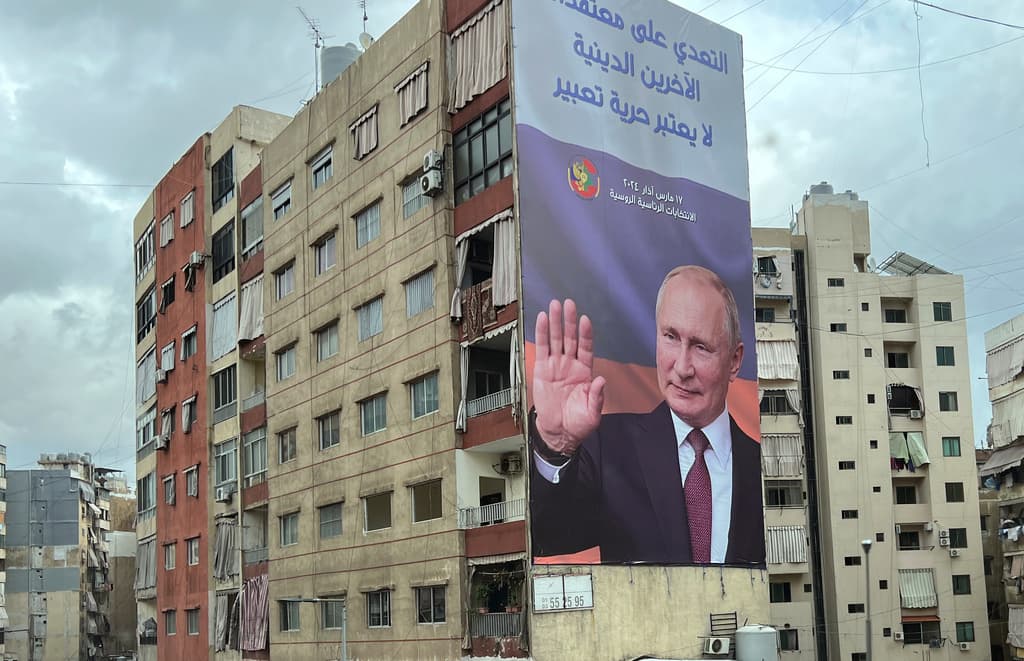In the background, Russia and the USA have crucial roles as the stakes rapidly escalate between Israel and Hizbollah in Lebanon.
The risk is extremely high that it will escalate, says Colonel Anders Ekholm at the Defence University.
I don't think they will hold back for much longer.
The exchange of fire across the Israel-Lebanon border is so far at a lower level of violence than in Gaza, but increasingly, signs are emerging that a major war may be looming.
The last massive escalation was in 2006, says Ekholm about the relationship between Israel and the Lebanese militia.
It was so powerful, the whole of southern Beirut was just rubble.
Since then, the short but intense war has been a deterrent, something no one wants to see again. But now, the stakes are once again reaching a breaking point.
Israel has a far-right security minister, Itamar Ben-Gvir, who has difficulty explaining why the northern parts of the country are uninhabitable due to rocket fire. And Hizbollah has, with Iran's help, built up an enormous military capability.
Militarily, Hizbollah is the world's strongest sub-state actor. Many times stronger than Hamas, says Anders Persson, Middle East expert at Linnaeus University.
They have an arsenal of up to 170,000 rockets.
Limit of Endurance
This does not bode well for Israel.
If Israel has difficulty defeating Hamas in Gaza, which it has after eight months of war, it is difficult to see how it would be easy or quick against Hizbollah, says Persson.
Ekholm describes Israel's air defence system as "the best in the world". But:
All systems have a limit. How much they can handle. Then it's just a matter of shooting enough to get through, at least some of it.
Thus, the question arises as to what the different sides want – which is very difficult to determine from the outside. As regards Israel, but even more so Hizbollah.
It's impossible to see into militant Islamist groups. They are like black boxes. We have no idea what the decision-making process looks like, says Persson.
Advertisement
Trump and Putin
But he also stresses that this is about global power at the highest level, with the scenario that Donald Trump could return as the USA's leader in the autumn.
I find it hard to see that he would sanction a long war in Lebanon if he were to become president. It may be that Israel wants to get this done before a possible shift in the White House.
Another actor is Russia, where the leadership is assumed to be pleased that the world is occupied with the Middle East.
Putin is the big, big winner geopolitically from the war in Gaza, says Persson.
And it's possible that he wants to continue winning with a war in Lebanon. Which would put Ukraine in the shade.
Some of the latest signs of increased tensions between Israel and Lebanese Hizbollah:
* "Hawks" in Israel's government were strengthened when opposition leader Benny Gantz jumped ship.
* Israel killed high-ranking Hizbollah member Talib Abdallah in southern Lebanon, which prompted the militia to respond with hundreds of rockets across the border.
* Israel's military announced that a complete plan is now in place for a large-scale military offensive inside Lebanon.
An Islamist movement, created in the early 1980s as a reaction to a conflict situation similar to today's. The Palestinian PLO had used southern Lebanon as a base for attacks against northern Israel, which led Israel to invade in 1982.
Inspired by the Islamic revolution in Iran a few years earlier, Lebanese Islamists formed Hizbollah ("God's Party"), a name chosen by the Iranian leader Khomeini.
An explicit main goal has been to expel all colonialists. In practice, this has meant that much of the armed struggle has been directed against Israel – seen as the representative of the Western world in the Middle East.
Within Lebanon, Hizbollah functions as "a state within a state", with a military power at least as great as the country's army and a strong role in politics and social life.






